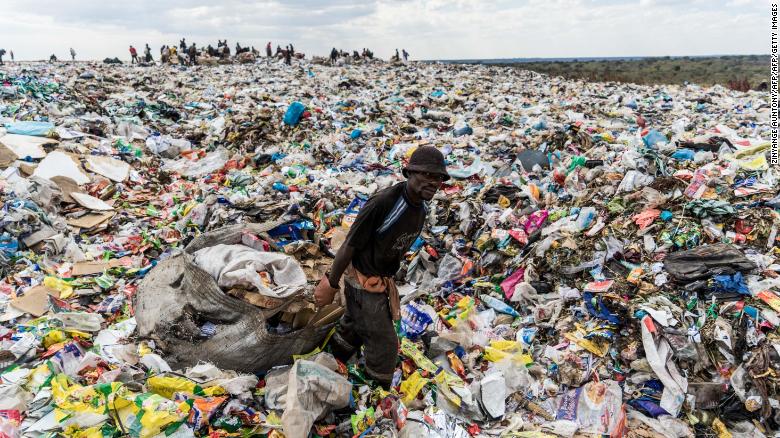Nations agreed to add plastic to the Basel Convention, a treaty that regulates movement of hazardous materials from one country to another, in order to combat the dangerous effects of plastic pollution around the world.
The pact was approved at the end of a two-week meeting of UN-backed conventions in Geneva, Switzerland.
But the US was not involved in the decision-making process, as it is one of just two countries that have not ratified the agreement.
The resolution means contaminated and most mixes of plastic wastes will require prior consent from receiving countries before they are traded, with the exceptions of mixes of PE, PP and PET, according to WWF.
Although it sat out of the decision, the ruling will still apply to the United States when it tries to trade plastic waste to virtually any country in the world.
The US has been sending its plastic waste to various countries around the world, including China and Malaysia, but has recently faced crackdowns in those countries as they attempt to cope with the amounts of plastic flooding through their borders.
Over the past year, other southeast Asian countries such as Thailand, Vietnam and India have also reportedly taken steps to restrict the import of foreign plastic waste, which has left containers of plastic sitting in US ports waiting for a destination.
The new international move is "a highly welcome step towards redressing this imbalance and restoring a measure of accountability to the global plastic waste management system," the WWF said.
An estimated 100 million tons of plastic is now found in the world's oceans, up to 90% of which comes from land-based sources, studies have found.
Nearly 1 million people signed a global petition this week urging the governments of the Basel Convention to take action, by preventing western countries from "dumping millions of tonnes of plastic waste on developing countries instead of recycling it."
And environmental groups welcomed the move after that call was acted on.





